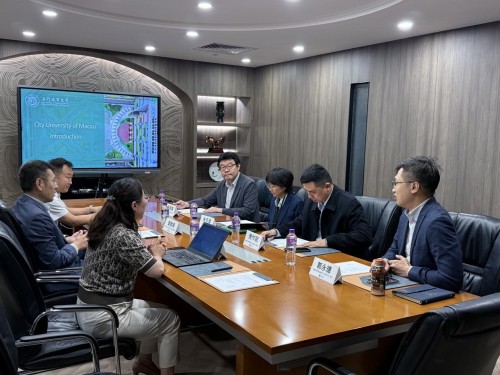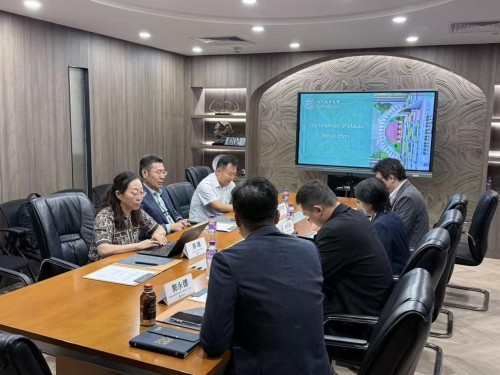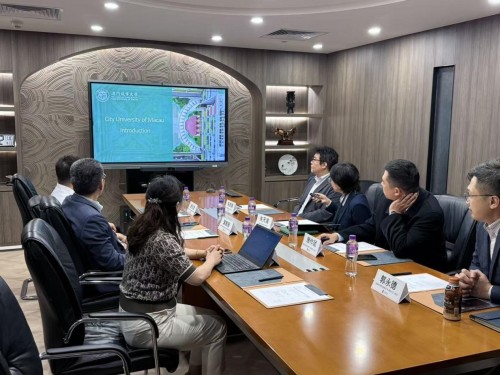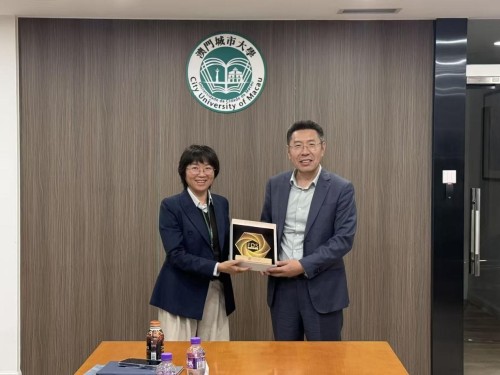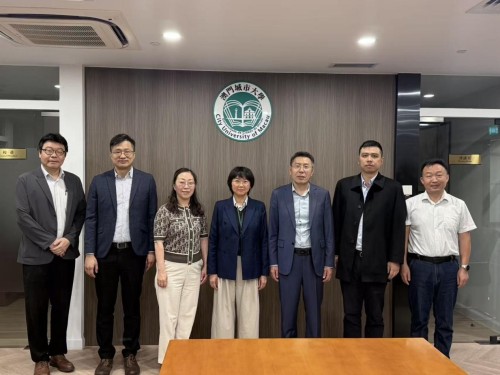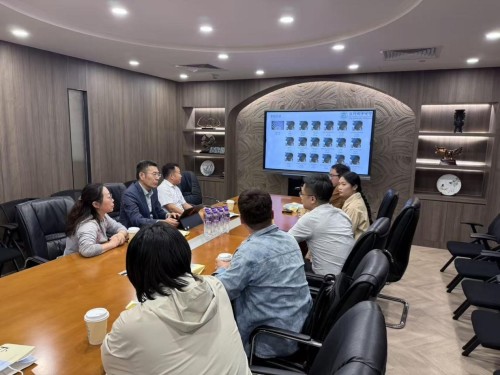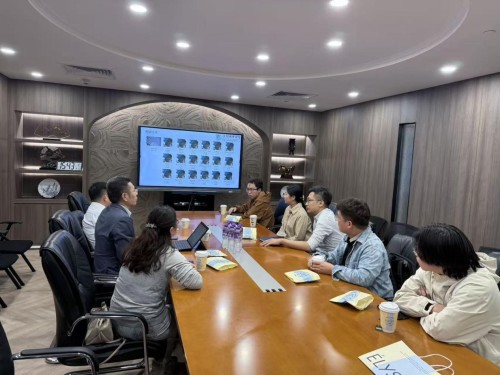On the morning of November 4, 2025, a delegation from Qingdao University of Science and Technology (QUST) visited the Taipa Campus of the City University of Macau (CityU). The two parties held an academic exchange meeting in Conference Room A207 of the Administration Building, engaging in in-depth discussions on discipline development, talent cultivation, and research collaboration, thereby laying a solid foundation for pragmatic cooperation.
At the outset, Associate Dean Zhu Tianqing of the Faculty of Data Science at CityU delivered a welcome address, extending a warm reception to the QUST delegation and presenting an overview of the faculty’s disciplinary layout, faculty profile, teaching outcomes, and research priorities. She emphasized that data science, as a pivotal interdisciplinary field, plays a critical role in enabling technological innovation and industrial upgrading, and expressed hopes to build a new model of cooperation through inter-university exchanges.
During the thematic exchange session, program directors at different levels from the Faculty of Data Science introduced their respective work. Master’s Program Director Weng Tak Kuok outlined the talent cultivation framework at the graduate level, highlighting curriculum design, practice-oriented teaching, and university–industry co-education mechanisms, with a focus on enhancing students’ innovation capacity and global outlook through diversified training models. Doctoral Program Director Ying Zuobin shared practices that integrate research with teaching and proposed joint training initiatives for high-level talents. Undergraduate Program Director Chia-Wei Chu detailed the undergraduate program in Data Science and Big Data Technology jointly run with Minzu University of China, covering resource integration, training objectives, and graduate outcomes, and expressed a desire to draw on QUST’s experience to optimize the program.
Professor Gong Dunwei, Dean of the School of Microelectronics at QUST, presented an overview of the university’s development from the perspectives of institutional history, disciplinary strengths, and research capacity, with particular attention to talent cultivation models, innovation and entrepreneurship education, and international engagement. He noted QUST’s strong foundations in microelectronics, automation, and data science, as well as its extensive industry partnerships, and expressed willingness to deepen collaboration with CityU in areas such as discipline development, talent exchange, and joint research, leveraging complementary strengths.
Subsequently, Professor Zhao Wencang from the College of Automation and Electronic Engineering and Professor Sun Jing from the School of Data Science at QUST proposed collaboration ideas grounded in their research fields. Professor Zhao shared research projects and academic achievements in automation technologies and intelligent control, suggesting joint efforts on key scientific and technological challenges. Professor Sun focused on big data analytics and AI applications, explored feasible collaboration models, and advocated establishing a regular research exchange mechanism to promote cross-institution seminars and project-based cooperation among faculty and students.
In the afternoon, the two universities co-hosted an academic salon. Three PhD candidates from CityU presented their research progress in data science, image analysis, and artificial intelligence, covering both application-driven studies and theoretical innovation. Professors from both institutions then offered expert commentary, engaging in in-depth discussions on research challenges, optimization directions, and entry points for cross-institutional collaboration, thereby further consolidating the outcomes of the exchange.
Following the meeting, representatives from both sides took a group photo. This exchange strengthened academic linkages between the two universities and injected new momentum into the coordinated development of higher education in the Guangdong–Macao region. Moving forward, both parties will take this exchange as an opportunity to accelerate the implementation of collaborative initiatives and deliver high-quality outcomes in talent cultivation and research

